By Robert Gottlieb | PW - Nov 30, 2012
Great Expectations: The Sons and Daughters of Charles Dickens is an outstanding biography of the writer with an eye toward his children, including the scandalous possible existence of an 11th child, born to Dickens's mistress. Robert Gottlieb, former Knopf editor, New Yorker editor, and lifelong Dickens reader, gives us the 10 best books from the master.
For more on the book, check out our Q&A with Gottlieb.
Charles Dickens left us fifteen novels, and in an ideal world everyone would read all of them. (Well, maybe not – Barnaby Rudge is a tired and tiresome historical novel that the young Dickens kept putting off writing until contractual obligations forced him to finish it.) His first published book was Sketches by Boz – a collection of short pieces that brought him considerable attention. By the time he was finished with his second book – The Pickwick Papers, serialized between March, 1836 and October, 1837 – he was, at twenty-five, the best-known writer in England, and such he remained until his death, at fifty-eight, in 1870. The energy, the fun, the power, the compassion of his work is unmatched in English literature, with the obvious.
How do you rate works of genius? Partly by personal inclination, partly by accepted wisdom, partly by popularity. Perhaps his most widely known works are A Christmas Carol and A Tale of Two Cities, and both are wonderful, but they don’t make my own top ten list. Instead:
1. Great Expectations - With its thrilling story that is also a profound look at the moral education of a boy who has been persecuted and deceived but whose essential goodness of heart eventually rescues him from snobbery and delusion. Everything is in harmony in this almost perfect novel: the character of Pip himself, and his interaction with the immense figures of the convict Magwitch, the embittered and half-mad Miss Havisham, and the beautiful, cold Estella. This is Dickens’s most finely crafted book, and his most moving.
2. Our Mutual Friend - His final complete novel, with its vast panoply of characters, its emotional generosity, its violent drama, its rich humor – and its author’s most likeable (because imperfect) heroine, Bella Wilfer. I’ve actually read this book aloud twice, and still find it irresistible.
3. David Copperfield - Of course – the book closest to Dickens’s heart (it’s not by accident that the hero’s initials reverse Dickens’s own). The first-person narrative sweeps you along, and the characters -- from the wicked Murdstones and conniving Uriah Heep to the warm-hearted if feckless Micawbers, from Aunt Betsey Trotwood, Little Em’ly, and Steerforth, her seducer and betrayer, to the stout-hearted Peggoty and the silly lovable Dora, whom David marries – are indelibly printed on our literary consciousness. (Among its greatest admirers: Tolstoy, Kafka, and Virginal Woolf.)
4. Bleak House - With its vastly complicated plot and its immense cast of characters swirling around the case of Jarndyce vs. Jarndyce that has been grinding away in the Court of Chancery for decades, Bleak House is for many readers Dickens’s greatest novel. An assault on the legal system, a satire on foolish philanthropy, a gripping melodrama, and an interesting use of point of view (told in both the third and first persons), it is a perpetual fascination.
5. Little Dorrit - In some ways Dickens’s most personal if not autobiographical novel, it has an autumnal quality, given its aging hero and quiet, staunch heroine. Its central characters not only prevail but mature, and its situations – even its comedy – resonate for its readers in countless affecting ways.

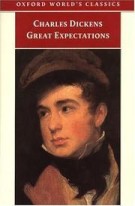
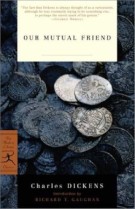
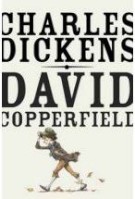
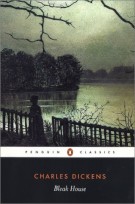
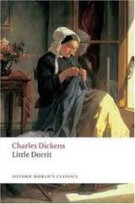
No comments:
Post a Comment